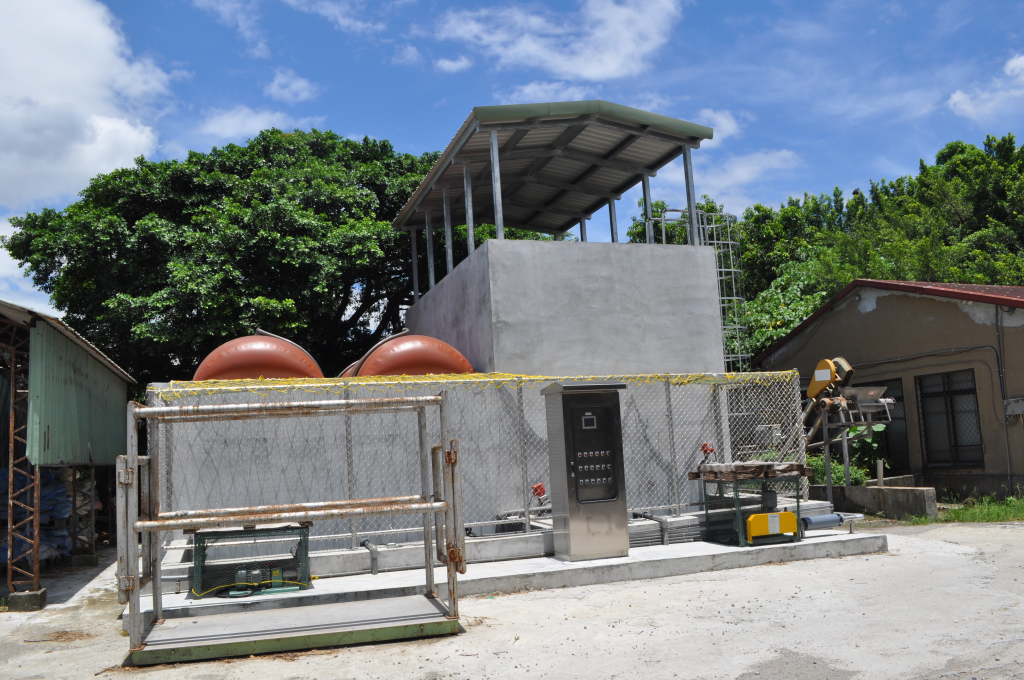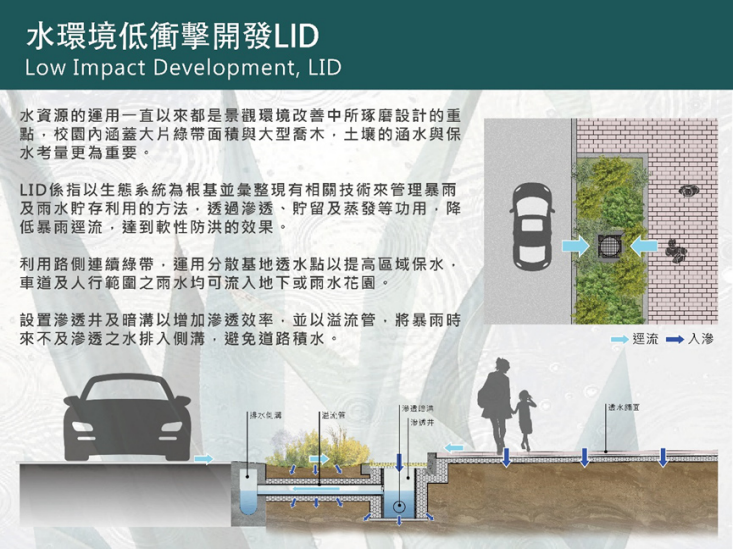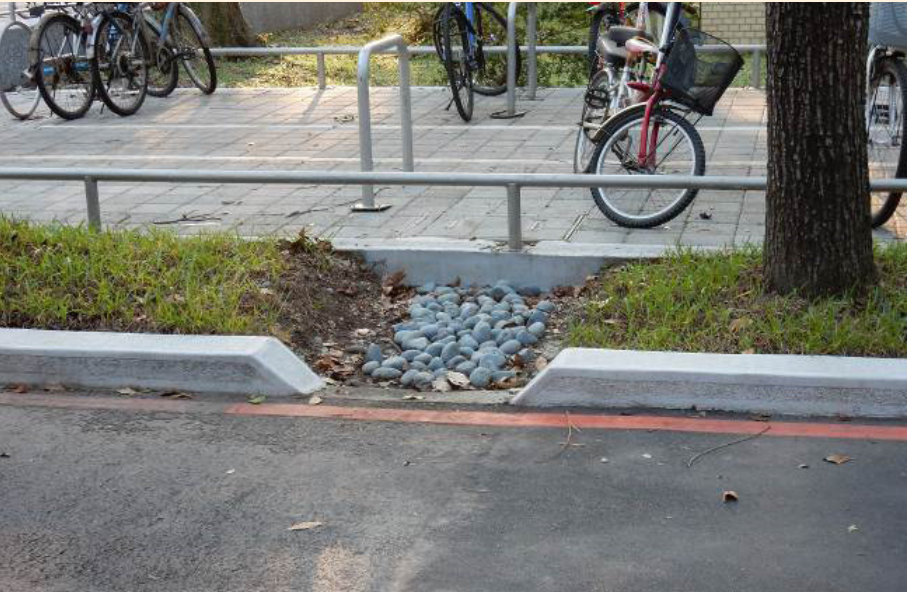According to Chapter 3, Article 22 of the "NTU Campus Planning Principle," all new buildings at NTU are mandated to achieve at least a bronze level Green Building Label issued by the government. This requirement means that water-saving rate must be less than 0.8 of the average water consumption, and construction plans must incorporate water reuse designs. The details are explained below,
- Wastewater Treatment Facility at NTU Livestock Farm
NTU has constructed a full-scale automatic wastewater treatment facility and all operation is controlled by a programmable logic controller (PLC) for treating the wastewater of 61 dairy cow, 150 pigs, and 18 goats on the livestock farm NTU. The wastewater is treated sequentially by solid/liquid separation, anaerobic digestion, and activated sludge treatment to meet the EPA’s effluent limits. The treated effluent (30 m3/day) is also allowed to enter the sewage system for further treatment to prevent polluted water from entering the water system. Further, about 1 to 5% (0.3 to 1.5 m3/day) of the daily effluent is applied to irrigate the trees in the NTU livestock farm.

- Retaining Water on Building Sites
To mitigate urban heat island effects, road improvement projects and new construction sites within the campus are planned with green spaces and permeable surfaces in mind. Apart from using permeable materials on the surface, the design includes a substantial permeable layer at the bottom to facilitate rainwater infiltration and groundwater replenishment. This approach aims to achieve the effects of a sponge city, ultimately improving the ecological environment, regulating microclimates, and reducing urban heat.

- Implementation of Rainwater Harvesting Systems
For most newly planned buildings on campus, rainwater harvesting systems are integrated. Rainwater collection tanks and harvesting basins are installed in the foundation raft layer below ground to collect rainwater within the building site for irrigating landscape plants.


- Campus Stormwater Management and Blue Ribbon System Water Replenishment
To address standing water issues on campus after heavy rainfall, the university has installed permeable water wells along the sides of roads. These wells serve functions such as floodwater dispersion, increased site permeability, and water retention.





